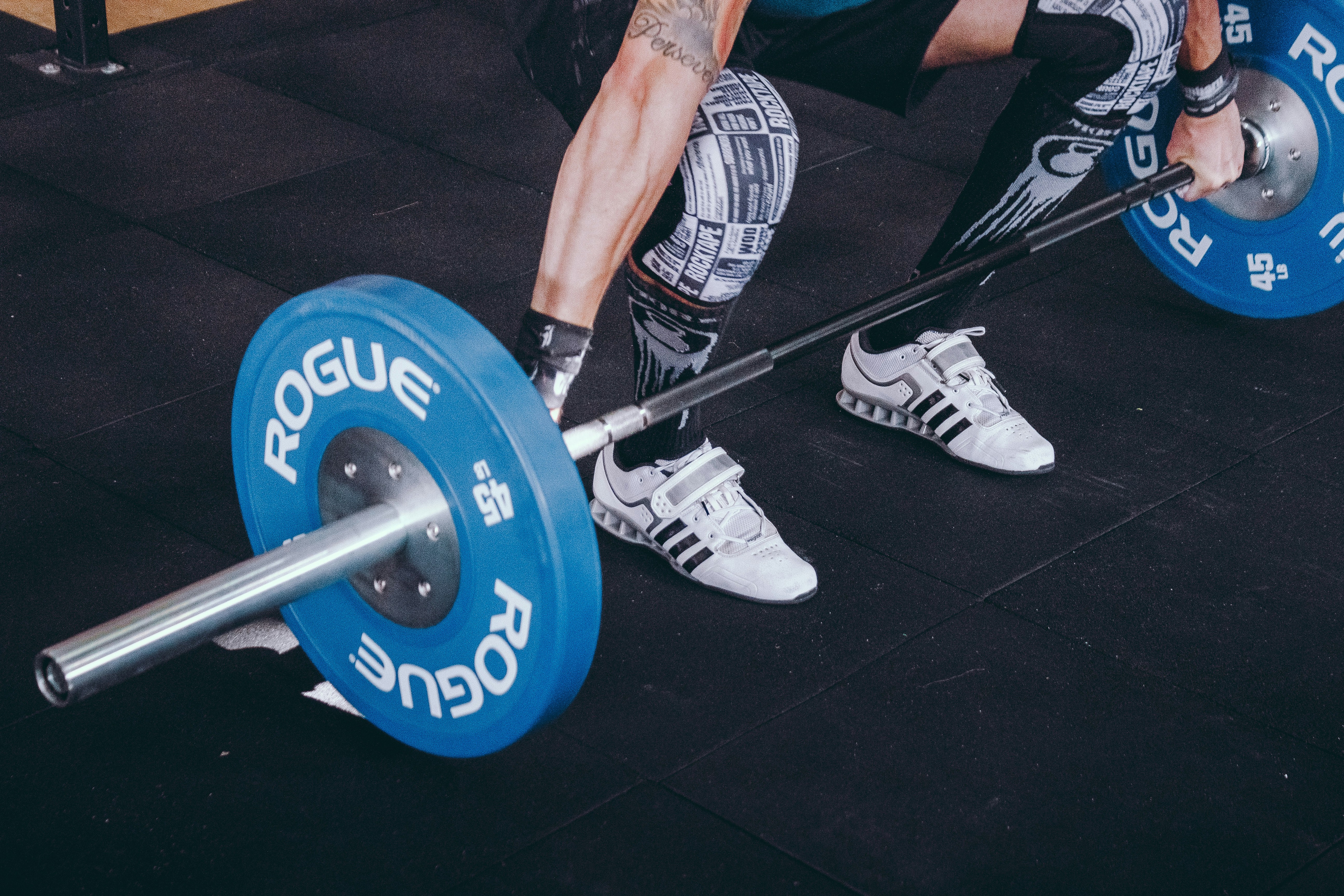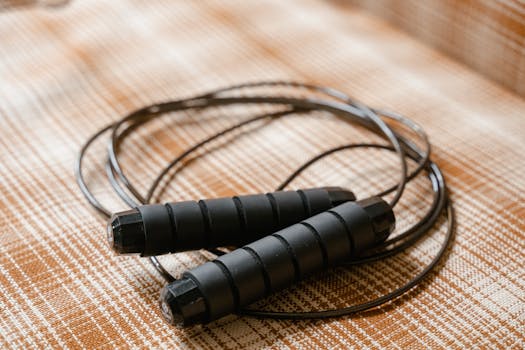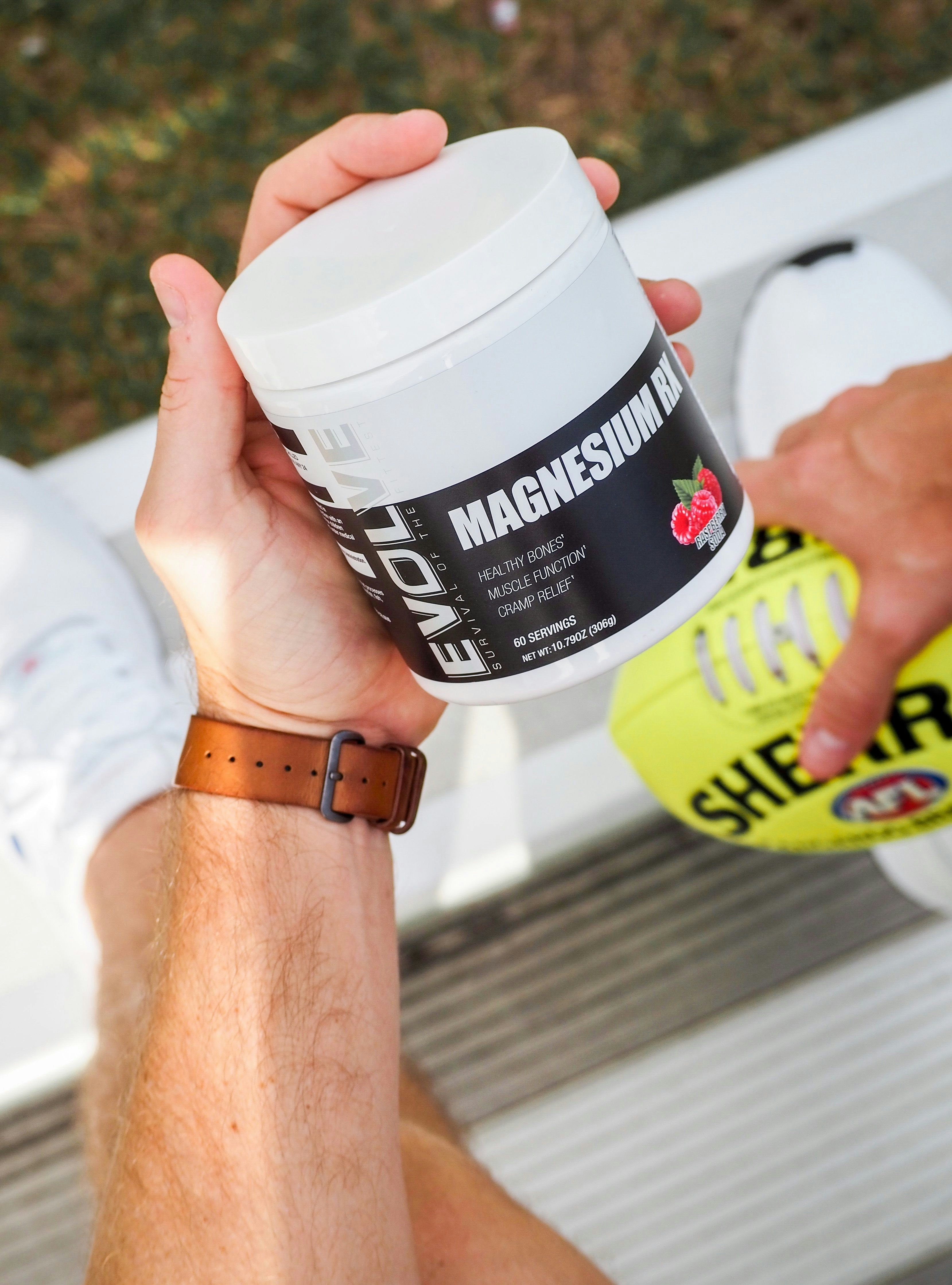3 Day Workout Split - Ultimate Guide 2024
Oct 16, 2024
Table of Contents 🏋️♂️
Introduction
What is a 3 Day Workout Split?
Benefits of a 3 Day Workout Split
Who Should Use a 3 Day Workout Split?
Anatomy of a 3 Day Workout Split
Push/Pull/Legs Split
Classic Bodybuilder Split
Upper/Lower/Full Body Split
Full Body Split
Sample Workout Plans
Push/Pull/Legs Sample Plan
Classic Bodybuilder Sample Plan
Upper/Lower/Full Body Sample Plan
Full Body Sample Plan
Creating Your Own 3 Day Workout Split
Exercise Selection
Structuring Your Workouts
Progressive Overload
Nutrition and Recovery
Dietary Guidelines
Rest and Sleep
Supplements
Common Mistakes to Avoid
FAQs
Conclusion
—
Introduction 🔥
Are you looking to build muscle, increase strength, and improve your overall fitness without spending every day in the gym? A 3 day workout split might be the perfect solution for you. This training approach is designed to maximize efficiency, allowing you to make significant progress while fitting into a busy schedule. 📅
In this ultimate guide, we'll dive deep into what a 3 day workout split is, its benefits, who should use it, different types of splits, sample workout plans, and how to create your own personalized routine. Whether you're a beginner or an experienced lifter, this guide will equip you with the knowledge to optimize your training for better gains.
—
What is a 3 Day Workout Split? 🤔
A 3 day workout split is a training regimen that divides your workouts into three sessions per week, focusing on different muscle groups or movement patterns in each session. This approach ensures that you target all major muscle groups while allowing ample time for recovery.
—
Why Choose a 3 Day Split? 💡
⏳ Time Efficiency: Perfect for those with a busy schedule.
🛌 Recovery: Adequate rest days promote muscle growth and prevent overtraining.
⚙️ Flexibility: Can be customized to suit individual goals and preferences.
🔥 Intensity: Allows for focused, high-intensity workouts.
Benefits of a 3 Day Workout Split 💪
1. Optimized Recovery Time 🛌
With rest days between workouts, your muscles have more time to repair and grow, reducing the risk of overtraining and injury. Recovery is crucial for muscle hypertrophy and strength gains.
2. Increased Workout Intensity ⚡
Fewer training days allow you to focus more energy on each session, leading to higher quality workouts. You can train with greater intensity, which is key for stimulating muscle growth.
3. Balanced Muscle Development 🔄
Structured splits ensure all muscle groups receive adequate attention, preventing imbalances and promoting symmetrical development.
4. Adaptable for All Levels 🎯
Whether you're a beginner or an advanced lifter, a 3 day split can be tailored to your fitness level, making it a versatile option for anyone.
5. Prevents Burnout 🧠
The reduced frequency helps maintain motivation and reduces mental fatigue associated with daily training, keeping you engaged in your fitness journey.
—
Who Should Use a 3 Day Workout Split? 🧐
Beginners: Ideal for those new to weightlifting, providing a manageable introduction to resistance training.
Intermediate Lifters: Great for those looking to break through plateaus by focusing on intensity and recovery.
Busy Individuals: Perfect for anyone with time constraints who still wants to make significant progress.
Athletes with Other Commitments: Allows room for other sports or physical activities without overloading the schedule.
—
Anatomy of a 3 Day Workout Split 🔍
There are several ways to structure a 3 day workout split. Let's explore the most popular types:
Push/Pull/Legs Split 🏋️♀️
Overview: Divides workouts based on movement patterns.
Push Day: Chest, shoulders, and triceps (pushing muscles).
Pull Day: Back and biceps (pulling muscles).
Leg Day: Quadriceps, hamstrings, glutes, and calves.
Benefits:
Minimizes overlap between muscle groups.
Allows for focused intensity on specific movements.
Ideal for balanced muscle development.
Classic Bodybuilder Split 🏋️♀️
Overview: Focuses on specific muscle groups each day.
Day 1: Chest and Triceps
Day 2: Back and Biceps
Day 3: Legs and Shoulders
Benefits:
Targets muscle groups with higher volume.
Great for hypertrophy and muscle isolation.
Suitable for intermediate to advanced lifters.
Upper/Lower/Full Body Split 🏋️♀️
Overview: Combines upper and lower body workouts with a full-body session.
Day 1: Upper Body
Day 2: Lower Body
Day 3: Full Body
Benefits:
Balances workload across the week.
Provides variety to prevent plateaus.
Suitable for intermediates seeking a mix of frequency and volume.
Full Body Split 🏋️♀️
Overview: Each workout engages all major muscle groups.
Day 1: Emphasis on compound movements.
Day 2: Different exercises targeting the same groups.
Day 3: Variation in intensity and volume.
Benefits:
High training frequency per muscle group.
Excellent for beginners learning proper form.
Efficient use of gym time.
Sample Workout Plans:
Push/Pull/Legs Sample Plan
Day 1: Push
Bench Press: 4 sets x 6-8 reps
Incline Dumbbell Press: 3 sets x 8-10 reps
Overhead Press: 3 sets x 6-8 reps
Dumbbell Lateral Raises: 3 sets x 12-15 reps
Cable Chest Flyes: 3 sets x 10-12 reps
Tricep Dips: 3 sets x 8-12 reps
Tricep Pushdowns: 3 sets x 10-15 reps
Day 2: Pull
Deadlifts: 4 sets x 5 reps
Pull-Ups: 3 sets x 6-10 reps
Bent-Over Barbell Rows: 3 sets x 6-8 reps
Seated Cable Rows: 3 sets x 8-10 reps
Face Pulls: 3 sets x 12-15 reps
Hammer Curls: 3 sets x 8-12 reps
Preacher Curls: 3 sets x 10-15 reps
Day 3: Legs
Back Squats: 4 sets x 6-8 reps
Leg Press: 3 sets x 8-12 reps
Romanian Deadlifts: 3 sets x 8-10 reps
Lunges: 3 sets x 10 reps per leg
Leg Extensions: 3 sets x 12-15 reps
Leg Curls: 3 sets x 12-15 reps
Standing Calf Raises: 4 sets x 12-15 reps
Classic Bodybuilder Sample Plan
Day 1: Chest and Triceps
Flat Bench Press: 4 sets x 6-8 reps
Incline Dumbbell Press: 3 sets x 8-10 reps
Decline Bench Press: 3 sets x 8-10 reps
Cable Crossovers: 3 sets x 10-12 reps
Overhead Tricep Extension: 3 sets x 10-12 reps
Skull Crushers: 3 sets x 8-12 reps
Tricep Kickbacks: 3 sets x 12-15 reps
Day 2: Back and Biceps
Deadlifts: 4 sets x 5 reps
Lat Pulldowns: 3 sets x 8-10 reps
T-Bar Rows: 3 sets x 6-8 reps
Single-Arm Dumbbell Rows: 3 sets x 8-10 reps
EZ-Bar Curls: 3 sets x 8-12 reps
Concentration Curls: 3 sets x 10-15 reps
Reverse Grip Barbell Curls: 3 sets x 12-15 reps
Day 3: Legs and Shoulders
Leg Press: 4 sets x 8-12 reps
Hack Squats: 3 sets x 8-10 reps
Hamstring Curls: 3 sets x 12-15 reps
Standing Calf Raises: 4 sets x 15-20 reps
Seated Dumbbell Press: 3 sets x 8-10 reps
Arnold Press: 3 sets x 8-12 reps
Lateral Raises: 3 sets x 12-15 reps
Rear Delt Flyes: 3 sets x 12-15 reps
Upper/Lower/Full Body Sample Plan
Day 1: Upper Body
Incline Bench Press: 4 sets x 6-8 reps
Pull-Ups: 3 sets x 6-10 reps
Military Press: 3 sets x 6-8 reps
Seated Cable Rows: 3 sets x 8-10 reps
Chest Flyes: 3 sets x 10-12 reps
Bicep Curls: 3 sets x 10-12 reps
Tricep Pushdowns: 3 sets x 10-15 reps
Day 2: Lower Body
Front Squats: 4 sets x 6-8 reps
Romanian Deadlifts: 3 sets x 8-10 reps
Leg Press: 3 sets x 8-12 reps
Lunges: 3 sets x 10 reps per leg
Hamstring Curls: 3 sets x 12-15 reps
Standing Calf Raises: 4 sets x 12-15 reps
Day 3: Full Body
Deadlifts: 4 sets x 5 reps
Squats: 3 sets x 6-8 reps
Pull-Ups: 3 sets x 6-10 reps
Incline Dumbbell Press: 3 sets x 8-10 reps
Seated Cable Rows: 3 sets x 8-10 reps
Lateral Raises: 3 sets x 12-15 reps
Hammer Curls: 3 sets x 8-12 reps
—-
Creating Your Own 3 Day Workout Split
Exercise Selection
Choosing the right exercises is crucial for maximizing gains. Focus on compound movements that work multiple muscle groups, complemented by isolation exercises for targeted development.
Key Compound Exercises:
Isolation Exercises:
Structuring Your Workouts
Warm-Up: Begin each session with a 5-10 minute warm-up to prepare your muscles and joints.
Main Lifts: Start with heavy compound exercises when your energy levels are highest.
Accessory Work: Follow with isolation exercises to target specific muscles.
Cool-Down: Finish with stretching or foam rolling to aid recovery.
Progressive Overload
To continue making gains, you need to progressively increase the demands on your muscles. This can be achieved by:
Increasing Weight: Add more weight to your lifts.
Increasing Reps: Perform more repetitions with the same weight.
Increasing Sets: Add an extra set to your exercises.
Improving Form: Focus on better technique and full range of motion.
Reducing Rest Time: Shorten rest periods between sets.
Nutrition and Recovery
Dietary Guidelines
Caloric Intake: Consume a caloric surplus if aiming to build muscle.
Macronutrient Ratios:
Protein: 1 gram per pound of body weight.
Carbohydrates: 2-3 grams per pound of body weight.
Fats: 0.3-0.5 grams per pound of body weight.
Meal Timing: Eat balanced meals throughout the day to maintain energy levels.
Rest and Sleep
Sleep: Aim for 7-9 hours of quality sleep per night to support recovery.
Active Recovery: Engage in light activities like walking or yoga on rest days.
Hydration: Drink at least 8-10 glasses of water daily to support muscle function and recovery.
Supplements
While not mandatory, some supplements can aid your progress:
Whey Protein: Helps meet protein requirements.
Creatine Monohydrate: Enhances strength and muscle mass.
Multivitamins: Fills nutritional gaps.
Omega-3 Fatty Acids: Supports joint health and reduces inflammation.
Common Mistakes to Avoid
Skipping Warm-Ups: Increases the risk of injury.
Poor Form: Can lead to injuries and less effective workouts.
Neglecting Recovery: Overtraining hampers progress and can cause burnout.
Inconsistent Nutrition: Hinders muscle growth and recovery.
Ignoring Progressive Overload: Leads to plateaus in strength and muscle gains.
Overemphasis on Isolation Exercises: Neglecting compound movements limits overall progress.
FAQs
Q1: Can I build muscle with only three workouts per week?
A: Yes, if you train effectively and focus on progressive overload, a 3-day split can lead to significant muscle growth.
Q2: Is the 3-day workout split suitable for beginners?
A: Absolutely! It's an excellent way for beginners to start strength training while allowing adequate recovery.
Q3: How long should each workout session last?
A: Typically, each session should last between 60 to 90 minutes, including warm-up and cool-down.
Q4: Should I incorporate cardio into my routine?
A: Light to moderate cardio can be added on rest days for cardiovascular health without hindering muscle recovery.
Q5: How do I know when to increase weights?
A: When you can comfortably perform the upper limit of your rep range with good form, it's time to increase the weight.
Q6: What if I miss a workout?
A: If you miss a session, try to reschedule it later in the week or continue with your routine as planned the following week.
Q7: Can I customize the workout plans?
A: Yes, feel free to adjust exercises, sets, and reps to suit your fitness level and goals.
Q8: Do I need supplements to see results?
A: Supplements are not mandatory but can aid in meeting nutritional needs. Focus on a balanced diet first.
Conclusion
A 3 day workout split offers an effective and efficient way to build muscle and strength without spending all your free time in the gym. By focusing on key compound movements, ensuring proper nutrition, and allowing for adequate recovery, you can achieve impressive results.
Remember, consistency and dedication are key. Customize your 3-day split to suit your preferences, monitor your progress, and make adjustments as needed. Stay committed, and you'll be well on your way to reaching your fitness goals.
You should not have to do it all on your own













